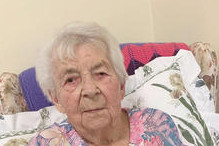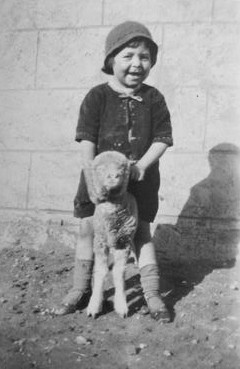General News
1 July, 2024
Polio pandemic and life on the farm
After celebrating her 100th birthday on March 5, Dorothy Gosling gave us permission to reproduce parts of her memoir My Memories of Bygone Days, which she published in 2003.

As you will read in this piece, and other snippets we share in the Rainbow Argus, life back then was different from life as we know it now.
From the education system and basic necessities to entertainment - everything was a lot harder, and many of today's norms were luxuries unheard of.
After last week's snippets in which we welcomed Mrs Gosling into the world and touched on life at school, we continue now with memories of the polio outbreak and life on the farm.
In 1937 a polio epidemic raged in parts of Victoria, especially Melbourne.
As most of our teachers were from Melbourne, parents were concerned when teachers went home to the city for the holidays and returned to teach.
Quite a number of parents kept their children home for a few weeks until they were satisfied the danger of catching the germ was over.
Parents were responsible for finding accommodation for the teachers and my mother had several teachers board with us during and after our school years.
At the beginning of my last year at school, my youngest brother, Bert, died suddenly of tetanus.
He was 16 and it was a dreadful shock to the family as well as the community.
In 1937, after gaining my Merit Certificate at the age of 13, I left school and stayed at home to help my mother.

Life on the farm
When my parents married they built their house on a farm property about three miles south of Yaapeet.
It was a humble four-room dwelling with corrugated iron on the outer and the inner walls and ceiling were made of weatherboards.
In later years, as the family grew, a large limestone kitchen was added to the building; it was the main living area from then on.
It has a thin concrete floor and the floor covering were mats that Mum had made with washed wheat bags, trimming the edges with floral cretonne.
A piece of hessian was tacked to the top of the doorway and hung to the floor, serving as a flywire door.
On hot days the hessian was made wet and we stayed behind it to try to catch a bit of cool air.
Having no sisters to play with dolls and the like, I joined in the boys' games: cricket, football, marbles etc.
Even though there was a six-foot netting fence around the house yard, someone would always manage to hit the cricket ball over it and through the kitchen window, which didn’t make Mum too happy.
We had a Blue Heeler who was the best wicket keeper we could have hoped for and a good fieldsman as well.
- Contributed by Dorothy Gosling.